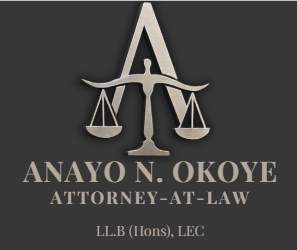Lawyer Answers

Recososa Law Firm
Under Article 1191 of the Civil Code, when one party fails to comply with what is incumbent upon him, the other party may either rescind the contract or demand its fulfillment, with damages in either case. In contracts for services or construction, payment is generally due only when the contractor has substantially performed the work in accordance with the contract.
a.) Since your contract clearly states that the final balance is due only “upon completion of work,” the company cannot validly demand or sue for the remaining amount unless completion has indeed occurred.
b.) You may also raise the defense of defective performance under Articles 1715 and 1723 of the Civil Code, which impose liability on the contractor or service provider for defects or poor workmanship.
c.) If they threaten to sue, you can defend yourself by proving that (1) the work is incomplete, (2) the workmanship is substandard, and (3) you have communicated your refusal to pay the final balance because of those deficiencies.
As a practical step, you should document the defects and unfinished work (through photos, written complaints, or third-party inspection) and formally notify the company in writing that payment will only be made upon satisfactory completion per the contract.
If the company still insists or files a case, the court will look into whether there was substantial performance or breach of the contract. In many similar cases, courts have ruled in favor of the client when the contractor failed to meet the agreed standards.
We can assist you in drafting a formal Notice of Defective Work and Demand for Rectification, or represent you if they file a complaint. Our firm, Recososa Law Firm, is located in the Philippines with offices in Luzon, Visayas, and Mindanao. We can schedule an initial consultation via Google Meet, Zoom, or a physical meeting at our office.
If this answered your concern, I hope it is not too much to ask to like and share our pages below.
Sincerely, ATTY. JOFRE B. RECOSOSA
Owner/Managing Partner
Recososa Law Firm

Recososa Law Firm
Under Article 1191 of the Civil Code, when one party fails to comply with what is incumbent upon him, the other party may either rescind the contract or demand its fulfillment, with damages in either case. In contracts for services or construction, payment is generally due only when the contractor has substantially performed the work in accordance with the contract.
a.) Since your contract clearly states that the final balance is due only “upon completion of work,” the company cannot validly demand or sue for the remaining amount unless completion has indeed occurred.
b.) You may also raise the defense of defective performance under Articles 1715 and 1723 of the Civil Code, which impose liability on the contractor or service provider for defects or poor workmanship.
c.) If they threaten to sue, you can defend yourself by proving that (1) the work is incomplete, (2) the workmanship is substandard, and (3) you have communicated your refusal to pay the final balance because of those deficiencies.
As a practical step, you should document the defects and unfinished work (through photos, written complaints, or third-party inspection) and formally notify the company in writing that payment will only be made upon satisfactory completion per the contract.
If the company still insists or files a case, the court will look into whether there was substantial performance or breach of the contract. In many similar cases, courts have ruled in favor of the client when the contractor failed to meet the agreed standards.
We can assist you in drafting a formal Notice of Defective Work and Demand for Rectification, or represent you if they file a complaint.
Our firm, Recososa Law Firm, is located in the Philippines with offices in Luzon, Visayas, and Mindanao. We can schedule an initial consultation via Google Meet, Zoom, or a physical meeting at our office.
If this answered your concern, I hope it is not too much to ask to like and share our pages below.

Law Office of Anayo N. Okoye
That’s a very important question.
Yes, a company can initiate legal action if it believes money is owed under a contract. However, whether they would succeed depends entirely on the terms of the agreement and the facts surrounding the performance of the work.
If your signed contract clearly states that the final balance is due upon completion, and the work is not completed, then payment of the final balance may not yet be legally due.
Additionally, under contract law principles, a contractor is generally required to perform the work:
In accordance with the agreed specifications; and
To a reasonable standard of workmanship.
If the work is incomplete or materially defective, you may have grounds to:
Withhold final payment (depending on the contract terms);
Require the contractor to remedy the defects; or
Claim damages for breach of contract.
However, two important cautions:
Review the contract carefully. Some agreements include staged payments, dispute clauses, or provisions allowing suspension of work for non-payment.
Do not simply stop communicating. It is advisable to formally notify the contractor in writing of:
The specific deficiencies in the work; that completion has not occurred, and that payment will be made upon proper completion in accordance with the contract.
If the matter escalates, a court would typically assess: Whether the contractor substantially performed the contract; Whether any defects are minor or fundamental; Whether withholding payment was reasonable in the circumstances.
Because construction and service contracts can be technical, it would be wise to have the agreement reviewed before taking further steps.
If you would like a detailed assessment of your contract and advice on the safest course of action, I would be happy to schedule a consultation.
Free • Anonymous • Expert Lawyers
Need Personal Legal Help?
Connect with experienced lawyers in your area for personalized advice on your specific situation.
No obligation to hire. 100% free service.


